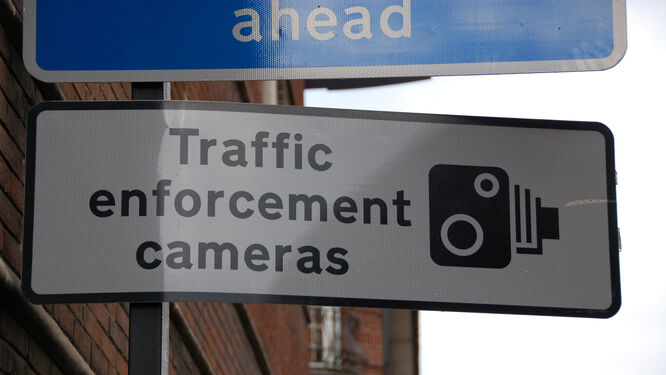The Accidental Tourist: Handling Driving Mishaps
By Rick Steves
Some travelers obsess about the possibility of a car accident while driving in Europe. Most come back bragging about their road skills and missing the freedom of the autobahn. Those who do have a mishap usually tell me it was the result of a tight squeeze in a parking garage. Still, it's good to know what to do if you hit a bump in the road. Figure out where to find your rental company’s emergency service number before you need it (it’s likely on a windshield sticker, your keychain, and the rental paperwork).
Traffic Accidents
If there's major damage to your vehicle, call your rental company's 24-hour emergency roadside assistance line. If the accident involves another car, you'll need to show your driver's license and insurance "green card" to the other driver and/or the police. Fill out the European Accident Report form that the agency includes with your rental documents.
If you plan to submit an insurance claim, notify your insurer as soon as possible, and file a police report — and get copies of that report — even if no other cars are involved. Both steps must happen within your policy's time limit. If the police refuse to write up a report ("it's only a scrape"), ask your hotelier to help you type up a report, take it to the police station, and ask them to stamp it. It's a good idea to take photos of the damage to your car and the license plate of any other vehicles involved.
Flat Tires and Mechanical Problems
Rental companies typically include roadside assistance or a towing service in the event your car becomes undrivable (sometimes for a fee). Ask about this possibility when you pick up the car. If your car has a serious issue, in theory, you should be able to swap it out for a replacement car at the rental company's nearest office. In reality, it may not be so convenient, especially if you break down in the middle of nowhere. If that happens, call your 24/7 roadside assistance number right away…then expect a wait for the tow truck. (If you rented through a consolidator, they may be of some help in speeding things up — but call roadside assistance first.) The repair will be covered by the rental company as long as it's clear it was the car's fault, not yours.
It's worth noting that burnt clutches account for the vast majority of breakdowns experienced (and paid for) by American drivers in Europe — go easy on the transmission.
Traffic Tickets
Just because there was no police car in sight when you ran a red light (or ignored the speed limit, drove into a restricted zone, or even tailgated too closely) doesn't mean you weren't caught — traffic cameras are everywhere. Quite likely, you won't know about the infraction until months later, when a letter arrives in your mail and/or a charge shows up on your credit card.
You likely won't get a chance to dispute a fine. Europe doesn't have traffic courts — you're simply expected to pay up. In some cases, the fine may be automatically billed to your credit card by your rental company. In other cases, the rental agency may charge you $50 just for providing your address to local authorities.
Of course, many renters just ignore any notices that show up months after their trip. It's understandable — paying the fine may not be all that straightforward, and it's not as if Interpol's on your tail. But be aware that fees go up the longer you delay, an unpaid ticket can follow you for years, and you'll likely be forced to pay it the next time you rent a car in Europe (especially if it's in the same country).

